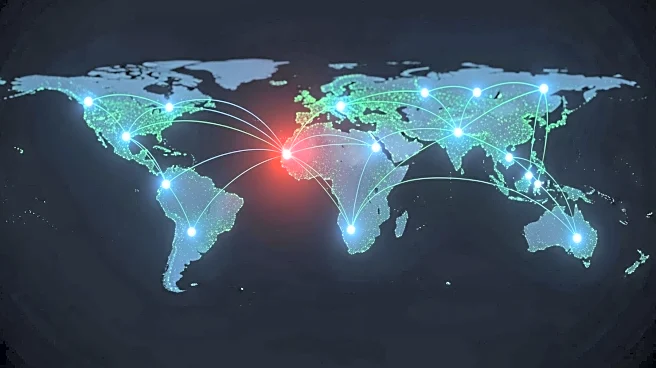What's Happening?
General Motors (GM) is urging its suppliers to reduce reliance on Chinese components, setting deadlines for 2027 in some cases. This strategic shift aims to enhance supply chain resilience amid geopolitical tensions and tariff volatility. The move reflects
broader industry trends, where automakers are reevaluating sourcing strategies to mitigate risks associated with rare-earth policy changes and chip shortages. Chinese companies, meanwhile, are expanding their global footprint, establishing operations in Europe, Southeast Asia, and Latin America.
Why It's Important?
GM's decision to diversify its supply chain underscores the challenges faced by U.S. automakers in maintaining stability amid global economic shifts. The reliance on Chinese components has been built over decades, and transitioning away from this dependency presents logistical and financial challenges. The broader impact includes potential changes in manufacturing costs, trade patterns, and international relations. As companies adapt, the automotive industry may see increased localization and innovation in supply chain management.
What's Next?
GM's suppliers will need to navigate the complexities of shifting sourcing strategies, potentially leading to new partnerships and investments in alternative markets. The automotive industry may experience further consolidation and restructuring as companies seek to balance resilience with cost efficiency. Stakeholders, including policymakers and industry leaders, will be monitoring the impact of these changes on global trade dynamics.
Beyond the Headlines
The shift in GM's supply chain strategy highlights the interconnectedness of global industries and the influence of geopolitical factors on business decisions. Ethical considerations arise regarding the impact on workers and communities affected by these changes. The long-term implications may include shifts in manufacturing hubs and the evolution of international trade policies.
















